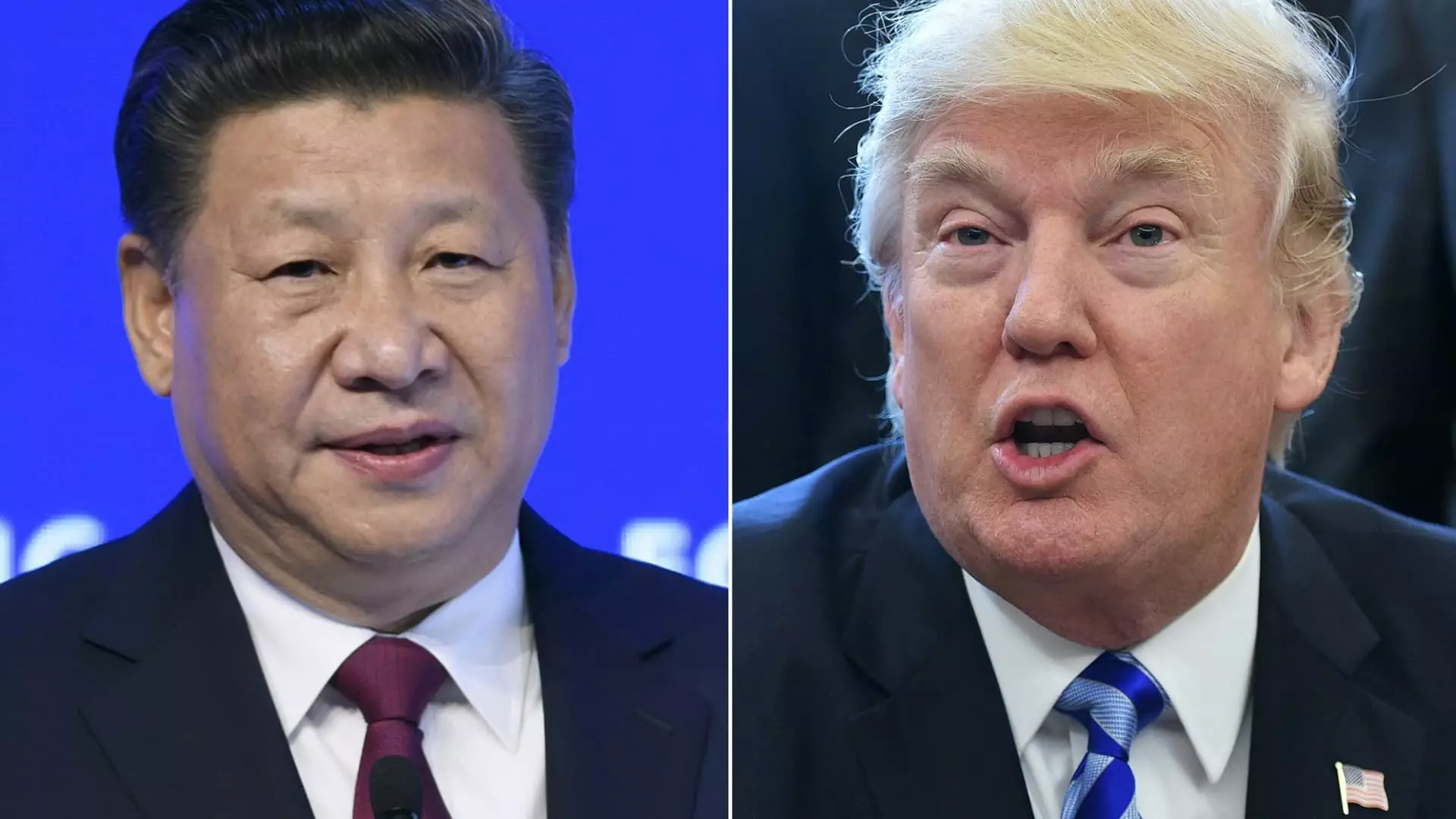Donald Trump has never shied away from stark declarations, and his recent outburst concerning China’s non-compliance with their trade agreement is no exception. His characterization of the situation as a breach of trust underlines the inherently tenuous nature of international trade relations. This sudden eruption is rooted not merely in diplomatic frustration but in a deeper sentiment of betrayal that Trump often manages to channel in his rhetoric. The question arises, however: is such behavior reflective of leadership, or does it expose a fundamental weakness in the approach to negotiations?
Trump’s declaration that China has “totally violated” their agreement is laced with drama, but it overlooks the complex reality of trade dynamics. Trade deals, especially those between global superpowers, are rarely straightforward and can evolve based on economic realities rather than simple compliance or defiance. The implications of labeling China as deceitful could be deep-seated; it throws fuel into the whirlwind of skepticism surrounding international partnerships. As he takes a stance reminiscent of an aggrieved victor, the potential ramifications for his presidency—and by extension, the U.S. economy—could be substantial.
The Emotional Undercurrent of Trade Policy
It seems that beyond mere economic statistics, Trump’s trade philosophy operates on a narrative of emotional inclinations; he often perceives trade, in cinematic terms, as a zero-sum game. His social media outburst regarding the supposed “savior” position he claims to have taken in the early stages of trade negotiations paints a picture reminiscent of a personal drama rather than a deliberative policy action. While it is commendable to express compassion for other nations suffering economic distress, one must question whether Trump’s solutions emerge from a place of genuine empathy or are primarily driven by self-interest and political calculation.
What makes this situation troubling, however, is the cocktail of unpredictability that Trump’s proclamations brew. His admission of circumventing tariffs for the sake of stabilizing the Chinese economy may have seemed benevolent at first, yet it reinforces the perception of American leverage in economic negotiations as a bargaining chip rather than a collaborative tool. As the President finds ways to navigate blame towards China for the perceived failures of his administration, it invites scrutiny over the effectiveness and ethics of impulsive economic parables played out on a global stage.
Implications for U.S. Economic Stability
The immediate ripples of Trump’s assertion were palpable in the stock market, demonstrating how closely markets dance to the whims of political discourse. Wall Street responded to Trump’s tirade with a drop, revealing the volatility bred by his often erratic communication style. If Trump’s version of diplomacy is one that hinges on impulsive declarations rather than steady negotiations, it poses the risk of destabilizing not just his administration but broader economic relationships.
The backdrop of Trump’s trade dealings with China is also punctuated by the role of his advisors, such as U.S. Trade Representative Jamieson Greer. His echoing of Trump’s concerns infers complicity in shaping a narrative that may not reflect the complex realities at play. The fact that trade discussions were characterized as “stalled” suggests that there are depths to this matter that merit careful navigation rather than inflammatory rhetoric.
Economically, the implications are dire; overhauling tariffs and trade agreements doesn’t simply reshape economics on the surface—it engulfs entire industries, worker stability, and consumer prices. The inflammatory tone of Trump’s language fails to recognize that trade is not merely a binary shift of wins and losses, but rather an intricate web of interdependencies.
The Detrimental Cycle of Distrust
Ultimately, Trump’s unfurling of accusations is not just a momentary fixation; it contributes to a detrimental cycle of distrust. By framing China as the villain in a simplistic narrative, one complicit in his metaphorical “TACO” trade saga, the opportunity for genuine cooperation is obstructed. His steadfast refusal to treat China as anything more than an adversary blinds him to the potential for collaborative economic advancement, which undoubtedly serves only to exacerbate tensions.
In a modern global economy, soft power—rather than the brute force of tariffs—could potentially yield more fruitful outcomes. A pivot towards dialogue and goodwill, rather than saber-rattling, is essential for fostering an environment where both nations could thrive. And yet, in the face of Trump’s “Mr. NICE GUY” theatrics, we find ourselves navigating a treacherous path marred by distrust, misunderstanding, and a reluctance to forge a sustainable path forward.


Leave a Reply